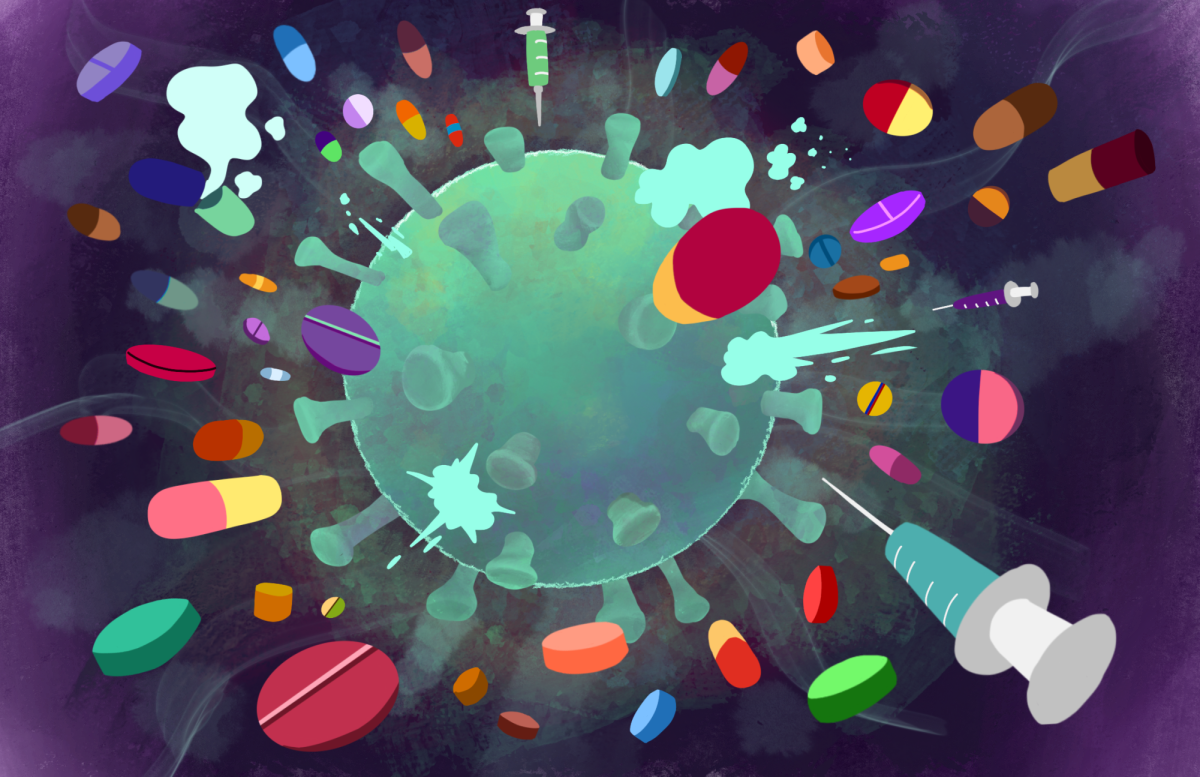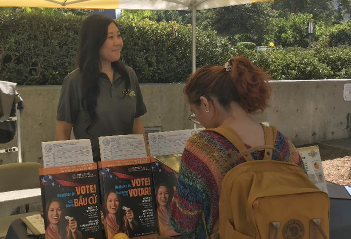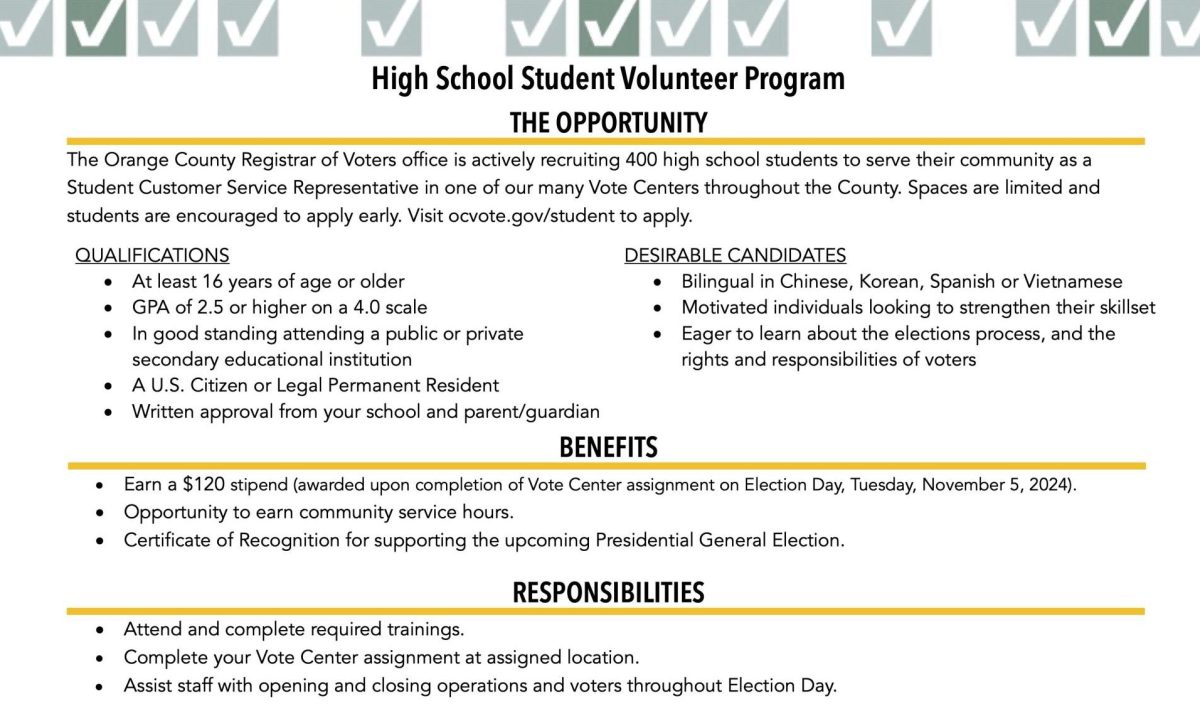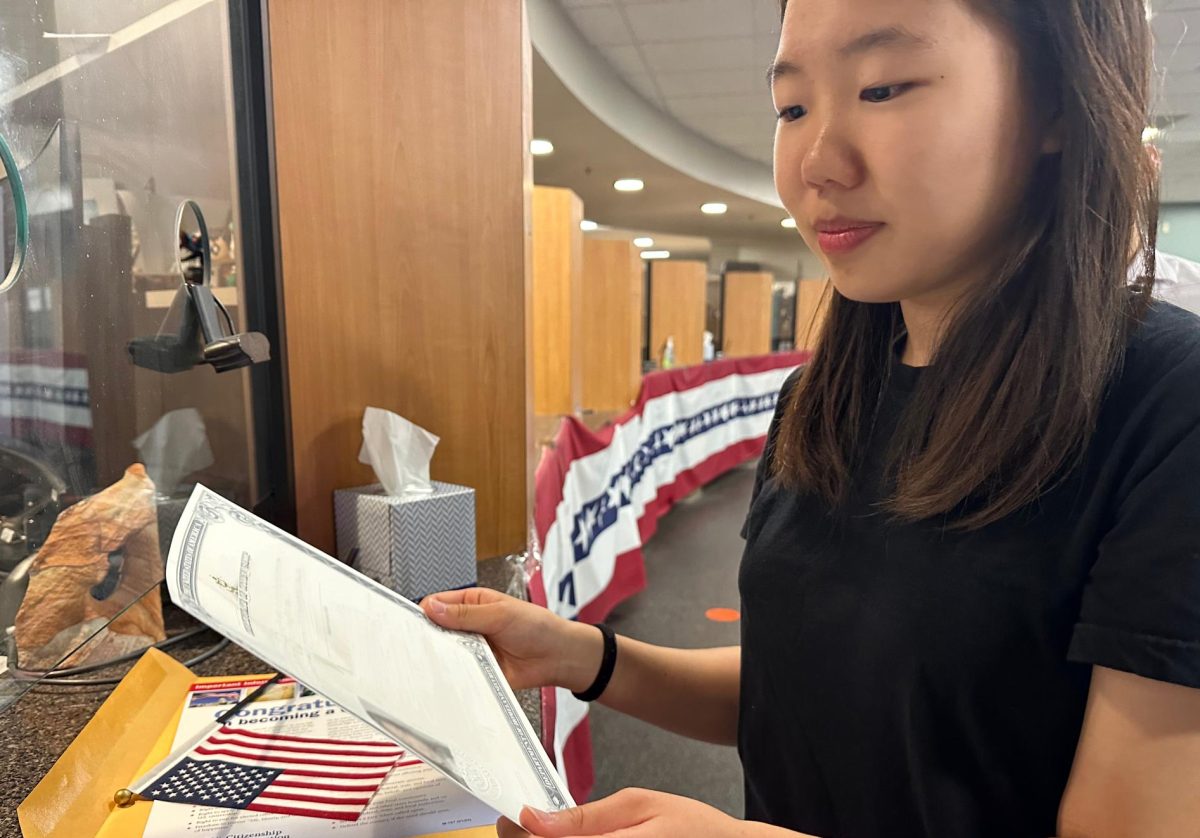During the peak of the COVID-19 lockdown when social interactions were limited to technological forums, the multiplayer online game, Among Us, earned its title as an instant cultural phenomenon.
With over 60 million daily active users in 2020, the game reached a vast audience, going as far as turning into a platform for New York Rep. Alexandria Ocasio-Cortez’s voter engagement initiative.
But for senior Julia De Leon, the hit game issued a different and unique interaction — the opportunity to engage in a remote relationship.
“I started my own Among Us game because I hated everyone else’s settings, and a few people stayed a few games; I liked playing with them,” said De Leon who does not consider her online dating experience as an official relationship. “So I told them to add my SnapChat, and this one guy added my SnapChat and we just started talking.”
De Leon is just one of the few millions of American teenagers who’ve built romantic relationships or situationships from social media platforms or other online applications.
“In most relationships nowadays, people meet online, and in metropolitan cities, it’s like the norm,” said Dr. Tara Suwinyattichaiporn, an associate professor at California State University Fullerton who specializes in a specific niche of sexual and relational communication. “With social media and online dating, there are a lot more available options, so I think it has changed the way young people view the functions of different relationships and how to enjoy them.”
According to Wiktionary, E-dating is defined as relationships that occur via an internet application and those that usually do not involve physical interactions.
While older generations typically relied on in-person contact mediated by family, friends or other mutuals, the digital realm is rapidly displacing these traditional modes of nurturing romantic relationships.
“You’re the first generation who does not know of a time before you had access to those technologies, so it’s a really easy and natural step to then transition to also navigating your dating relationships using technology,” said Dr. Liesel Sharabi, an assistant professor and director of the Relationships and Technology Lab at Arizona State University.
“Something that was different for my generation was that you kind of had to date out of circumstance, whereas now if you have this idea in your head of what type of person you want to meet, we now have the technology to make it happen.”
Senior Kenneth Hyun who met his former partner through the instant messaging platform Discord believes that its accessibility, as well as its capacity to expose teenagers to a wider audience, makes the internet a favorable platform to connect with outsiders.
“The biggest advantage is that you can meet new people outside your local area and circle of friends,” Hyun said.
For Sharabi who’s currently researching virtual reality and its applications within relationships, a future when humans can closely interact without physical contact is a promising one.
“I don’t see a future where online dating displaces in-person relationships, but I see a future where they’re increasingly more integrated, where you’re moving between technology and face-to-face more seamlessly,” Sharabi said.
Sophomore Ashlee Byars, who experienced an online relationship during the fall of 2021, sees a future where remote relationships become more customary.
“I think e-dating will become a more normalized thing in the future with technological advances,” said Byars, who noted that the biggest difference between an online and in-person relationship was the lack of communication and trust issues that followed the physical barrier. “I wouldn’t encourage anyone to e-date because there is a lot that can happen that is easy to hide from you through a screen.”
In the midst of such popularity, Suwinyattichaiporn offers a psychological explanation behind the appeal of internet dating.
“In terms of e-dating, I think the pandemic definitely increased the numbers of users for online dating,” Suwinyattichaiporn said. “I think that it’s more comfortable for people who have social anxiety to be online, which there’s nothing wrong with, but at some point, you have to be able to transfer that relationship to in-person.”
“I guess for introverts or people who aren’t very comfortable with meeting in person for a first date, it’s a nice way to get to know each other before that first meeting,” said Jane Doe, a SH student whose name was kept anonymous for privacy reasons. “I would encourage it, especially with technology getting so advanced in our generation, but I would be more cautious since you can be fooled easily.”
In 2020, the Federal Bureau of Investigation noted that over 23,000 Americans reported being victims of catfishing — the act of fabricating an online persona.
“At the time I was in college, online dating apps didn’t exist, so online relationships were really stigmatized,” Sharabi said. “I would encourage you all to definitely turn to technology to expand your reach; just be safe and smart about it.”
Suwinyattichaiporn encourages teenagers to practice digital literacy — a skill that will help adolescents steer clear of online predators and deception.
“For those that are interested in online dating, I would say to proceed with caution by not spending too much time online and being aware of catfishing and grooming,” she said.
Though younger generations including Gen Z are actively destigmatizing e-relationships and the negative perception surrounding internet intimacy, others propose a different route toward experimenting with teenage romance.
“I would not encourage others to pursue online relationships,” Hyun said. “Most high schoolers have little to minimal experience with dating, but by having an e-relationship they may develop a skewed sense of romance — something that might hinder them in the future.”
De Leon said that privacy concerns as well as the lack of intimacy were some of the biggest challenges of maintaining a healthy remote relationship.
“Now that I think about it since I am older and have not online dated for about two years, it’s kind of scary to think of pursuing a whole relationship with someone you’ve never met in real life — especially for me since I didn’t video call them or anything, so I didn’t know if they were actually who they said they were,” De Leon said.
Despite the rise in popularity of remote relationships, Suwinyattichaiporn advocates for authentic, in-person interactions, which she believes will improve teenagers’ socializing abilities.
“There’s an art to interpersonal interaction, talking in real life, telling jokes and reading nonverbals — things that you don’t get online and you don’t get through social media,” the professor said. “There’s a unique type of friendship that people make online that I think is valuable, but not to discount in-person interactions.”















